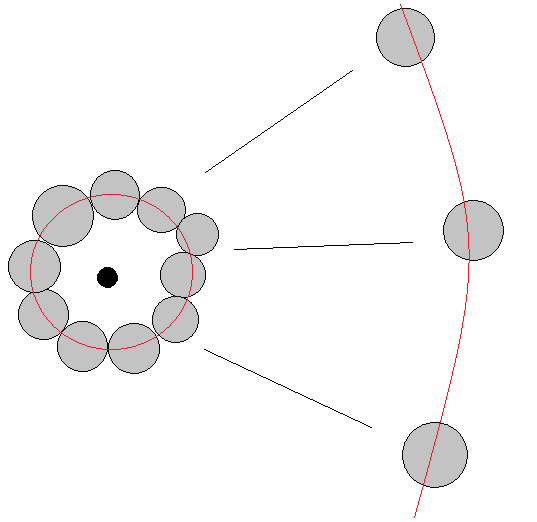Not sure how to word my question.
Picture a light source in vacuum, so nothing disturbs the light (or similar conditions), 2d.
If I move very, very far away, will it happen that some of the light hits right beside me (both left and right), but not exactly at where I am?
Seeing as there will be a fixed number of photons sent away from the light, and a huge circumference for them to spread, they cannot possibly hit every point of the circle?
If it was a person kicking footballs in all directions instead of the light, the footballs would hit everywhere on a circle with small radius (red circle). If the radius is bigger, the distance between the balls traveling will be greater, and there will be gaps between the balls where I can stand without being hit (red arc).

I'm unsure how this would work with light, being both like footballs but also a wave.
Thanks
